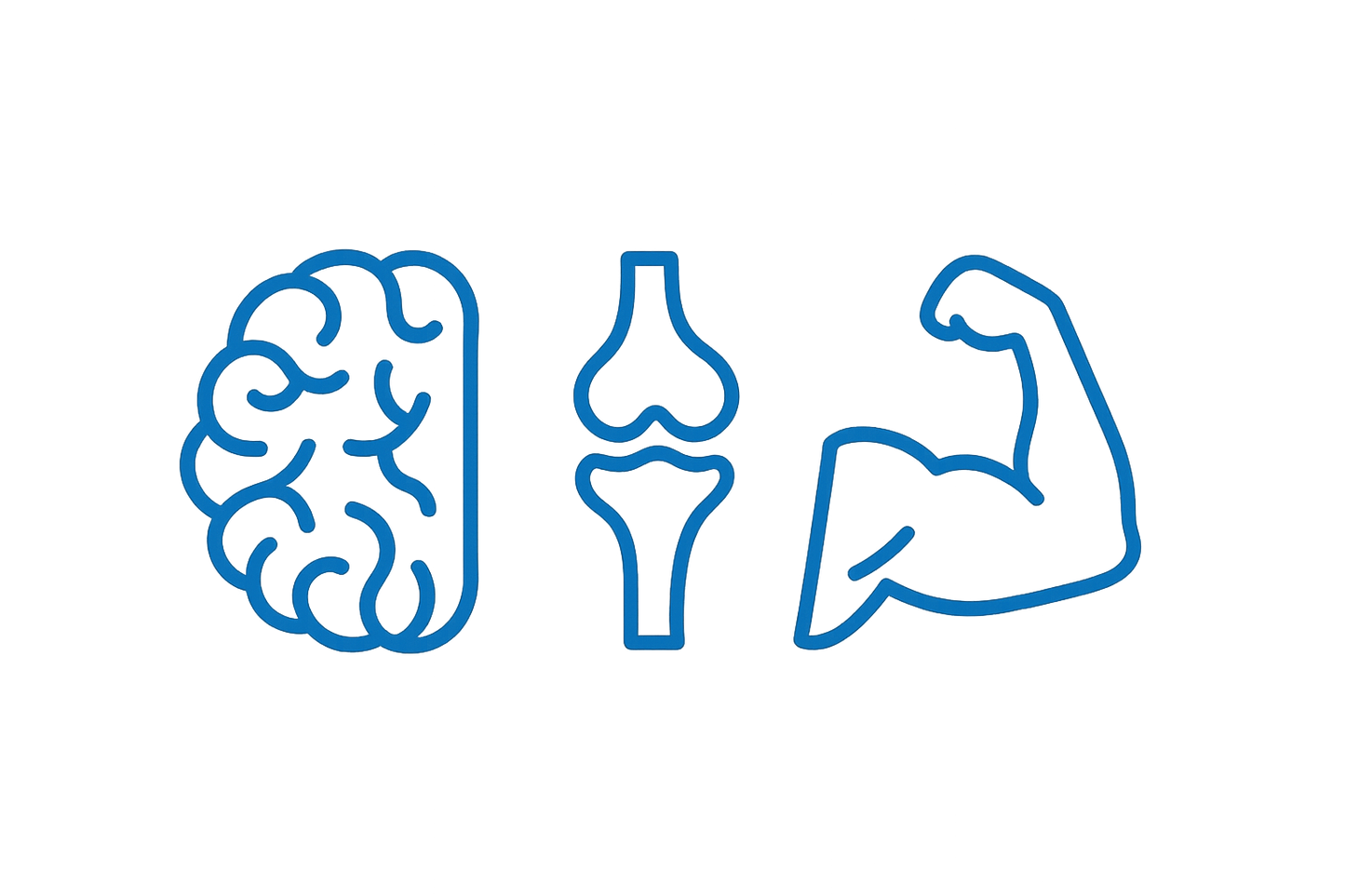
Sleep Your Way to Fat Loss and More Muscle
When it comes to body composition, fat loss and muscle gain are two sides of the same coin. But here’s the surprising truth: you can’t achieve either without proper sleep. Sleep isn’t just “recommended”—it’s required if you want to optimize fat loss, strength, recovery, and performance.
In this article, we’ll explore how sleep stages affect hormones, metabolism, hunger, and training results. By the end, you’ll understand why 7–8 hours of quality sleep is one of the most powerful fat-loss and muscle-building tools available.
Why Sleep Is More Than Rest
Sleep is a complex biological process divided into two main categories: NREM (non-REM sleep) and REM (dream sleep). Each cycle lasts about 90 minutes and repeats 4–5 times per night if you’re getting 7–8 hours.
The Four Stages of Sleep
- Stage 1: Light sleep (5–10%). A transition between wakefulness and rest as brainwaves slow to theta patterns.
- Stage 2: Deeper sleep (up to 55%). Brainwaves slow further and body temperature drops.
- Stage 3: Slow-wave sleep (15–25%). The most restorative phase for recovery, fat metabolism, and muscle repair.
- REM sleep: Characterized by heightened brain activity and vivid dreaming, but physical paralysis.
Stage 3 sleep is particularly important for body composition. This is when the body releases its most powerful anabolic hormones that drive fat burning and muscle growth.
Sleep and Hormones: The Fat Loss–Muscle Connection
Growth Hormone (GH)
Stage 3 sleep is when your body produces the largest pulses of growth hormone. GH is one of the most important anabolic hormones—it drives muscle repair, recovery, and fat metabolism. The less slow-wave sleep you get, the less GH you release, and the harder it becomes to build lean muscle or mobilize fat stores.
Testosterone
Testosterone isn’t just a male hormone—it’s vital for women too. Adequate sleep boosts testosterone production, while sleeping 5 hours or less can slash testosterone levels by up to 15% in otherwise healthy adults. Without enough testosterone, training adaptations, muscle growth, and recovery all suffer.
Cortisol
On the flip side, inadequate sleep raises levels of cortisol, the body’s primary stress hormone. Elevated cortisol triggers muscle breakdown, increases appetite, and promotes fat storage around the midsection. Studies show that restricted sleep elevates cortisol by 37–45% the following evening—enough to accelerate metabolic decline and impair cognition.
How Sleep Loss Disrupts Fat Loss
Losing sleep doesn’t just make you tired—it directly sabotages fat loss. Here’s how:
- Hunger hormone dysregulation: Poor sleep throws off leptin and ghrelin, increasing cravings and snacking.
- Lower metabolism: Basal Metabolic Rate (BMR) can drop by up to 20% after sleep restriction.
- Less spontaneous movement: Fatigue reduces daily activity, lowering total energy output.
- Increased fat storage: Cortisol plus insulin resistance encourages central fat gain.
This primitive survival mechanism may have helped our ancestors during famine, but in the modern world it works against us—leading to stubborn fat around the belly and reduced training performance.
The Health Benefits of Quality Sleep
Still not convinced? Adequate sleep improves almost every dimension of health and performance:
- Reduces chronic inflammation, lowering risk of injury and disease.
- Supports fat utilization for energy, leading to leaner body composition.
- Improves motivation and willpower, helping you stay consistent with diet and training.
- Boosts immune function, cardiovascular health, and recovery capacity.
In short: better sleep equals better body composition, better performance, and better resilience.
Tips for Better Sleep (Next Steps)
In my next post, we’ll dive into sleep hygiene strategies—practical steps to improve your sleep quality, ranging from light exposure and meal timing to breathing and relaxation rituals.
For now, remember: no supplement, no training hack, and no diet trick can replace the fat-loss and muscle-building power of a consistent 7–8 hours of high-quality sleep.
About the Author
Jackie Cruickshank Cohen is an NBHWC Board Certified Health and Wellness Coach, True Cellular Detox Certified Practitioner, author, and elite master’s athlete. She specializes in guiding clients toward better performance and longevity through science-backed lifestyle strategies.
Continue exploring: Ask Dr. Cohen Blog Series
The Highest Bar. Life Elevated. PureClean Performance
